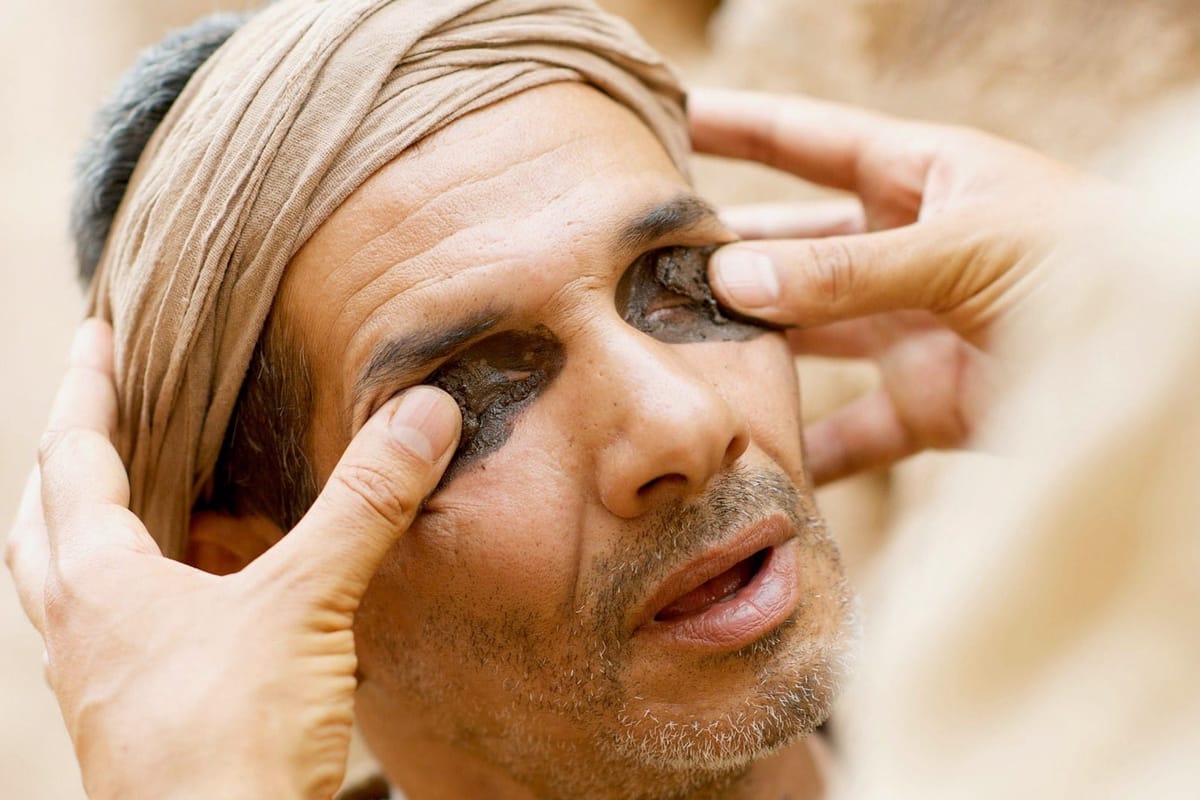Healing with Saliva
I am the light of the world.

Key words
- Saliva: the liquid produced in your mouth to keep the mouth wet and to help to prepare food to be digested
Oral bacteria can obtain nutrients from saliva.
- Sect: a religious group that has separated from a larger religion and is considered to have extreme or unusual beliefs or customs
When he was 16 he ran away from home and joined a religious sect.
- Go so far as to ...: to be willing to do something that is extreme
One journalist went so far as to call him a terrorist sympathizer.
- Mockingly: in a way that involves laughing at someone unkindly
She laughed mockingly at his appearance.
- Impose: to force someone to accept something, especially a belief or way of living
I don't want them to impose their religious beliefs on my children.
Read the article to find the answers
- How did Jesus make the clay he used to give sight to a man born blind?
- What was the most influential sect in Judaism?
- What was the Pharisees' rule about spitting on the Sabbath?
- What did the Pharisees teach about the saliva of a first-born son?
Jesus Heals with Saliva
The Gospels are full of stories of Jesus healing the sick, sometimes at a distance, sometimes with a word, sometimes by touch. Jesus also used his saliva to heal. He used it to heal a deaf and dumb man, and he gave sight to a man born blind by picking up some mud from the ground, spitting in it and rubbing the clay on the blind man's eyes.
This way of healing seems strange to us today, but to the Jews who witnessed it in first-century Judea, Jesus had proved that he was the Messiah, the Son of God.
To understand why Jesus healed a blind man with clay made from mud and saliva, we must first understand the beliefs and traditions of the Jews living in the Roman province of Judea in the first-century.
The Roman Province of Judea
The Kingdom of Israel lasted for three generations before splitting into two. After a period, the northern Kingdom of Israel was completely destroyed, and the southern Kingdom of Judah came under the influence of the Assyrians, and then the Egyptians. It was ruled over by the Babylonians, Persians, Greeks, and finally the Romans, who named the region the Roman province of Judea.
When the Greeks Hellenised Judah, the religion became known as Judaism, with the Pharisees being the most influential sect. They were obsessed with creating new laws based on their interpretations of the Bible, even going so far as to regulate where Jews could spit. The Pharisees accused Jesus of being fatherless and of breaking the law. Jesus accused the Pharisees of putting their traditions above the law of God.
The Pharisees
Working on the Sabbath was strictly forbidden by the Pharisees in first-century Judea, and these restrictions extended even to making clay by accident. The Pharisees ruled that if Jews had to spit on the Sabbath, they had to spit on a rock or a tree, not on the ground, because the saliva could mix with the mud on the ground and form clay.
The Pharisees used to tell a story about two brothers who were arguing about who was the eldest. A rabbi took the brothers to a blind man and told them to spit in his eyes to find out which of them was the first-born. This was because first-century Jews believed that the saliva of the first-born son had the power to cure blindness.
First-century Jews believed that the human body was moulded from clay made of saliva and mud. Soon after the Pharisees mockingly asked Jesus who his father was, Jesus used his saliva and mud to make clay, and then used it to give sight to a man born blind, proving that even according to the traditions of the Pharisees, he was the first-born Son of God and that the Pharisees were imposing a man-made religion on the Jews.
Discussion questions
- Do you have any questions about any of the vocabulary or grammar in this article?
- Did your country have a strict people like the Pharisees?
- Do you think some people still impose man-made religions on others?
- Have you ever had a sample of your saliva taken?
- What do you think of faith healers?

Book a Lesson
Improve your English language communication skills by practicing with a qualified and experienced native speaker.





